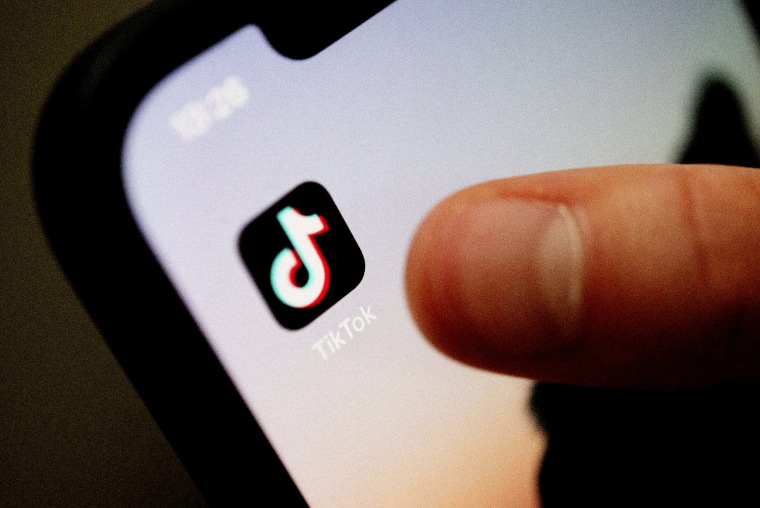TikTok said Wednesday that it will require the accounts of politicians and political parties to be verified and that it is making it harder for them to use the platform's advertising and fundraising systems.
Blake Chandlee, president of global business solutions for the short-form video platform, said in a blog post that he hopes these actions will help curb the misinformation that's been plaguing American democracy.
"As we have set out before, we want to continue to develop policies that foster and promote a positive environment that brings people together, not divide them," Chandlee said in the post. "We do that currently by working to keep harmful misinformation off the platform, prohibiting political advertising, and connecting our community with authoritative information about elections."
Chandlee said verification of politicians or government entities will be crucial to building trust with platform followers.
"If our community is watching content from an account belonging to a government, politician, or political party, we want them to know the account is genuine," according to Chandlee.
"We don’t proactively encourage politicians or political parties to join TikTok, but we welcome those that have chosen to and want to ensure our community knows the source is authentic when watching that content. Verification lets our community know an account is authentic and belongs to the user it represents, which is a way to build trust between high-profile creators and their community."
While TikTok "has long prohibited political advertising, including both paid ads on the platform and creators being paid directly to make branded content," the platform said it's taking new steps to clamp down on the flow of money through its service.
TikTok said will prohibit "these accounts from accessing other monetization features," meaning that "they will not have access to features like gifting, tipping, and e-commerce, and will be ineligible for our Creator Fund."
"These changes, along with our existing ban on political advertising, mean that accounts belonging to governments, politicians, and political parties will largely not be able to give or receive money through TikTok’s monetization features, or spend money promoting their content," according to the platform's statement.
While TikTok is a relatively new entrant to the world of politics, some politics-related topics have flourished on the app. Videos with an abortion hashtag have amassed 3.9 billion views, according to the company's website.
Not many politicians have fully embraced the platform just yet, though Rep. Val Demings, D-Fla., has found some success.
TikTok, like other social media platforms, has various rules for what users are and are not allowed to post, though enforcement can be an issue. NBC News recently found videos for the QAnon conspiracy theory, which is banned on TikTok, had racked up millions of views.

